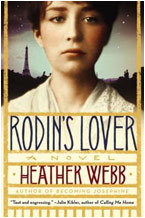 I attended half of a dozen writer’s conferences in 2011. I met scads of great people and learned a boatload about the publishing industry. Good times. But despite all of the positive, one major issue loomed larger than all informative seminars combined–the shifting book market. While I have nothing against those who self-publish, (who knows, I may go down that road), I am rather tired of hearing all of the…
I attended half of a dozen writer’s conferences in 2011. I met scads of great people and learned a boatload about the publishing industry. Good times. But despite all of the positive, one major issue loomed larger than all informative seminars combined–the shifting book market. While I have nothing against those who self-publish, (who knows, I may go down that road), I am rather tired of hearing all of the…
GROSS GENERALIZATOINS
Everyone is self-publishing. It’s impossible to get an agent or a traditional pub contract. Amazon will own the entire market. To name a few hyperboles.
1. Trust me. Everyone is NOT self-publishing. MOST of the writers I know are either established in the traditional publishing market or are seeking traditional publishing. Yes, many of them are open to e-books and the possibilities of self-publishing, but they want the finality, the prestige, the stamp of success associated with a contract through a traditional publisher.
2. It IS possible to land an agent. There are thousands of agented authors. The problem is, many writers don’t want to do the real work associated with landing an agent. For one, a writer’s craft must be EXCELLENT and ORIGINAL(this is no easy feat). Two, writer’s must seek out those who would truly be interested in their work. Three, writer’s need A LOT of patience. Granted, plenty of wonderful authors will slip through the cracks. It happens, but learning the ropes and following the proper avenues may very well lead to signing with an agent, which ALSO happens.
3. This seems like an asanine generalization to me–traditional publishing contracts aren’t happening anymore? Yes, I’ve actually heard plenty of people say this. Check Publisher’s Weekly for the many, many contracts sold each day.
4. Amazon owns one of the largest shares of the book market, it’s true. But independent book stores are on the rise (NY Magazine & ABC News ). By George, there will be printed books.
DOOMSDAY THEORIES
The traditional industry is going under! By 2015, newly printed books will be a bygone! Literary agencies won’t be needed.
1. The BIG 6 aren’t stupid. They didn’t become the leaders in the industry for nothing. While it’s true they were slower to move toward e-books, it doesn’t mean they are OPPOSED to them. As a matter of fact, the traditional pubs are making a fortune on e-books. That’s right, they have moved along with the times and are updating both their contracts to include e-book sales and their marketing strategies.
2. As for the banishment of printed books, that’s absurd. Despite the fall of the book vendor giants like Borders (now extinct), and Barnes & Noble (reports massive fall in stock), there will always be books in print. Look at the music industry. A core group continue to buy compact discs, even with the advent of electronic music files. Not everyone prefers technological gadgets and others enjoy owning the fancy, glossy booklets inside.
3. And literary agencies not needed? BAH. A literary agent will always be necessary, ESPECIALLY with e-publishing. With contracts changing almost daily and with the hundreds of indie presses popping up all over the internet, each with varied fine print, it becomes more important than ever to have a knowledgable advocate on the author’s side.
CHANGE
Change is hard. Most of us aren’t any good at it. As the sphere of publishing revolves, it evolves, leaving authors befuddled about their direction. But take heart. With change comes OPTIONS. Lots of them. And that can never be a bad thing.
13 Comments
Join the conversation and post a comment.
Trackbacks/Pingbacks
- Between the Sheets » Blog Archive » Fifty Shades of Theft - [...] “It’s a Dystopian World in Publishing” [...]














Great post. I too have an agent who is repping my book. I could self publish, but I chose to go the longer route. If my agent sells my book to a top publisher, terrific. If she places it with a smaller publisher, terrific. Either way, I’m in print and I have to get off my fanny and do the marketing. And I’m darned good at marketing. So, those who give up on traditional publishers just might leave more room for the rest of us.
Great perspective on the issues, Heather! Patience, perseverance and the willingness to perfect one’s craft will help writers weather the changes and ultimately land an agent or a contract. Upwards and onwards!
Perceptive and sensible article.
First as last, talent counts. I must admit it’s getting quite embarrassing to have people get in contact via FB groups etc., excited because they are finally published. Unable to acquire either an agent and/or publisher, they’ve finally done it themselves. A large number aren’t even fit to be published. The advice I always gave writers at workshops was that if you started piano lessons tomorrow you wouldn’t expect to be giving a concert in a year’s time. Even two or three years. So why do you presume you can write?
A good writer will always win through – eventually.
JG–It’s so true! Why do writers assume they should be published just because they can string sentences together? It’s as much an art form as every other creative pursuit.
Betsy, I also appreciate those who leave more room for the rest of us.
Julianne, if only patience and perseverance were easy. 😉
Nicely said! I’m happy to see someone speak out in defense of traditional publishing. Hard work and a lot of patience have gotten me to the point I’m at today (agented and on submission). When others toss around the myths and generalizations you mention, it almost makes me feel that, in the eyes of many of my fellow writers, my accomplishes are for naught.
Unfortunately, traditional publishing has been garnering a negative reputation from the self-publishing crowd about their “inevitable demise.” Too many myths abound about indie publishing being the future for authors. I don’t believe that the Big Six are going away any time soon, and I sure hope they don’t! I use them as a filter for the books I read. If an author’s story doesn’t make their cut, I figure there must be a reason, as harsh as that may sound to some.
I have to agree with you, M.E. I believe in the gatekeepers who act as filters to keep the market from garbage glut. BUT, as I mentioned in the post, some very talented authors slip through the cracks. Thanks for your comment.
I am going to my first conference next month, so I can’t wait to hear what I’ll hear. Thanks for this!
I just registered for my third conference. I’m excited! I’m stopping by for the blog hop. I’m a new follower. Thanks for stopping by my blog and following me. I appreciate it.
I was right with you right up until your third doomsday paragraph. To me, the reasons you cited explain quite nicely why you need a LAWYER at your back. There are probably good uses for agents in the writing world, but I don’t see why you would not entrust legal matters to a legal professional. Unless your agent is also a member of the bar, he/she is neither competent, nor legally allowed, to give you legal advice.
That’s a good point, Michael. Having a publishing lawyer can also be a great resource for a writer. What a lawyer lacks, however, is contacts within a publishing house.
I am glad to read about this. I was discouraged when Borders went out of business, and people began to predict the doom of free standing bookstores. I have two books on Amazon eBooks and one paperback. But right now I am in the process of proofing a book of Daily Meditations for Christin Living. I have been writing this since 2006. I want to get a good agent and try for a traditional publisher. I have put too much work and energy into this book to just put it on Amazon for a pittance. When I go to the city, I will look for a book about Christian agents. Maybe I can persevere and find one.
I may be terribly old-fashioned, but I want an editor between myself as a writer and my readers. I also want an editor between me as a reader and the writer. I see far too many self indulgent works that would have been better off left in a drawer. I am very tired of well-meaning friends asking why I don’t self-publish. I still think the correct term is “vanity” publishing. When I hear that so and so has been “published” by certain organizations, I point out that s/he has been printed by them. Give me an editor any day, and a proper publisher who is not just in business to take money from writers!